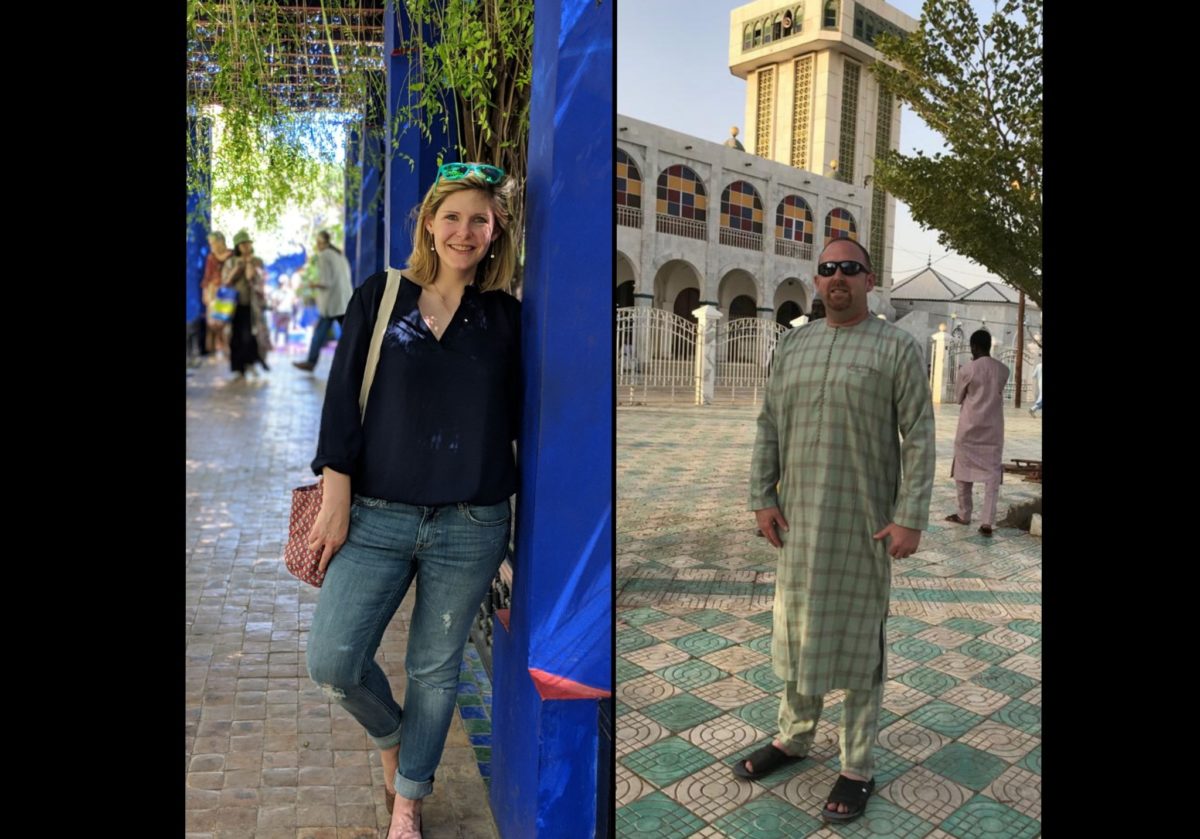
Allegheny Alumni Make Cross-Cultural Connections through Education
Allegheny College alumni Jim Miller ’99 and Sabina Sully ’05 were each awarded a 2018–19 Fulbright Teachers for Global Classrooms Program fellowship, which allowed them to travel to Africa to teach and observe. Only 74 teachers across the U.S. were chosen for this highly competitive program.
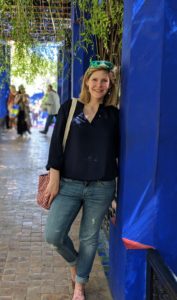 “Each Fulbright fellow develops a guiding question that helps to guide their observations while having their in-country experience,” said Sully, whose Fulbright took her to Morocco in early March.
“Each Fulbright fellow develops a guiding question that helps to guide their observations while having their in-country experience,” said Sully, whose Fulbright took her to Morocco in early March.
This Fulbright program provides support specifically to teachers, with the intent of enhancing their expertise, assisting in internationalizing the U.S. classroom, and developing mutual understanding and lasting relationships between the U.S. and other countries.
“Because I work in a high needs, urban area,” said Sully, “I was particularly interested in how schools in Morocco are supporting under-resourced and/or rural families as well as the ways in which they are incorporating a community-based educational philosophy.”
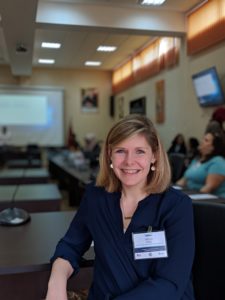 Sully graduated from Allegheny with a women’s studies major and history minor, went on to complete her Master of Arts in teaching at Towson University, and now teaches seventh-grade English language arts at Patterson Park Public Charter School in Baltimore, Maryland.
Sully graduated from Allegheny with a women’s studies major and history minor, went on to complete her Master of Arts in teaching at Towson University, and now teaches seventh-grade English language arts at Patterson Park Public Charter School in Baltimore, Maryland.
“My time at Allegheny instilled in me a passion for social justice and the desire to choose a career path that would make a difference in the lives of others,” Sully reflected. “As I explored career options post-graduation, choosing to work in the Baltimore City Public School System felt like a very natural match with those interests.”
When Sully started teaching in Morocco in March, she was initially surprised at how crowded the classes were, before realizing that many of the students had come of their own accord to learn English from a native speaker.
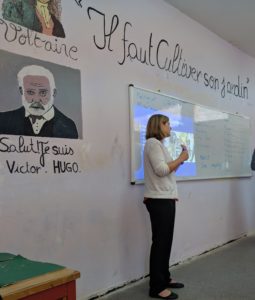 “The level of intrinsic motivation my students in Morocco demonstrated in regards to practicing English really stood out,” said Sully. “So many students throughout my time there pushed themselves out of the language comfort zones, always looking for chances to practice. Seeing the level of dedication students had to their studies was definitely inspiring, and I can’t wait to continue to partner with my Moroccan colleagues in the future.”
“The level of intrinsic motivation my students in Morocco demonstrated in regards to practicing English really stood out,” said Sully. “So many students throughout my time there pushed themselves out of the language comfort zones, always looking for chances to practice. Seeing the level of dedication students had to their studies was definitely inspiring, and I can’t wait to continue to partner with my Moroccan colleagues in the future.”
Sully was able to take time to learn, teach, and observe during her time in Morocco. She co-taught in El Jadida, worked with Moroccan teachers and students participating in Fulbright’s sister programs, and collaborated on future global education projects with colleagues.
“The incredible kindness and hospitality of the students was overwhelming,” Sully said. “Students drew portraits of us, came in with presentations about Moroccan culture, brought traditional dishes, and generally were incredibly excited to share their classrooms and culture with me.”
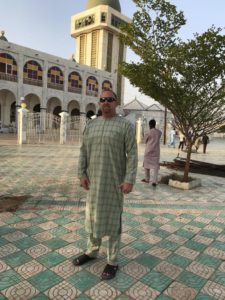 In April, Miller traveled to Senegal to begin his Fulbright journey, where he participated in cross-cultural activities, taught English and science to middle school students near Kaolack, Senegal, toured schools to learn about the education system in Senegal, and visited the U.S. Embassy.
In April, Miller traveled to Senegal to begin his Fulbright journey, where he participated in cross-cultural activities, taught English and science to middle school students near Kaolack, Senegal, toured schools to learn about the education system in Senegal, and visited the U.S. Embassy.
“The one thing that resonated throughout my trip was ‘Teranga,’ or the sense of hospitality,” said Miller. “Even though the people of Senegal have very few material possessions, the people are genuinely happy, want everyone else to feel welcomed and happy, and truly value their culture and community. Of all of the countries I have visited, Senegal was definitely the country where I felt most welcomed and part of the family of everyone I met.”
One moment that especially resonated from Miller’s time in Senegal took place in a rural village. He saw middle school students working out molarity equations by hand in a classroom made of sticks and a dirt floor, with no electricity — only a chalkboard.
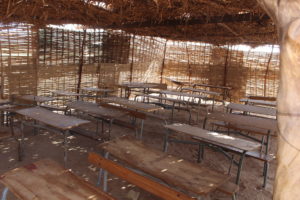 Recalled Miller: “This moment inspired me because these students were so motivated to come to school every day, were really energetic and engaged in the classroom, and were completing these difficult math operations without the use of technology. As teachers in the U.S., we are encouraged to use technology in our classroom every day, and I was able to witness those students being successful even under those conditions and without technology.”
Recalled Miller: “This moment inspired me because these students were so motivated to come to school every day, were really energetic and engaged in the classroom, and were completing these difficult math operations without the use of technology. As teachers in the U.S., we are encouraged to use technology in our classroom every day, and I was able to witness those students being successful even under those conditions and without technology.”
Miller graduated from Allegheny with a major in environmental studies and a minor in communications, and went on to get his teaching certificate through Ashland University and his master’s degree from Miami University’s Global Field Program. He now teaches AP environmental science at Cleveland Heights (Ohio) High School and is part of Miami University’s instructional team for the Project Dragonfly graduate program. In 2011, Miller was selected to participate as a PolarTREC teacher, where he was paired with scientists from Cornell and Stanford to conduct research on the thawing permafrost in Alaska.
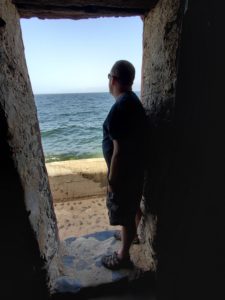 Miller’s time at Allegheny set the foundation for his career path.
Miller’s time at Allegheny set the foundation for his career path.
“Allegheny was a great experience and one that I hold in high regard,” recalled Miller. “The rigor of the courses and the great instructors truly made Allegheny an amazing experience. The diversity of the students and the friendships you make while a student are unforgettable and will be with you for the rest of your life. Every chance I get I encourage my students to look at Allegheny and see if they think they would be a good fit to go there.”
Miller notes that, while education is a challenging career, it has also proven to be incredibly rewarding.
“Seeing your students walk across the stage and then come back to you years later boasting about what they have accomplished since they left my classroom, makes everything I do worthwhile,” he said.